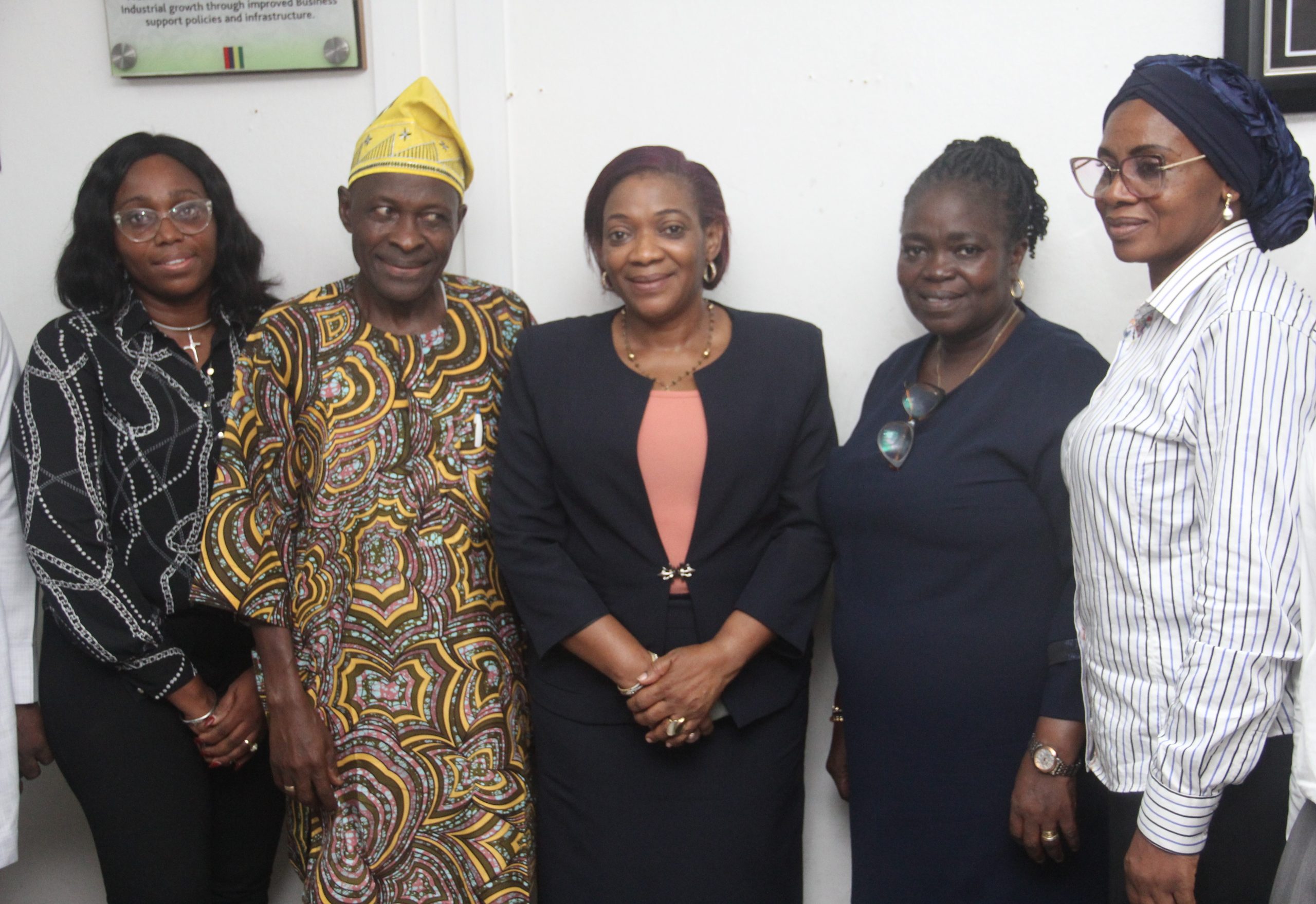The Lagos State Government has expressed its desire to partner the Chartered Institute of Export and Commodities Brokers of Nigeria, CIECOBON, on the process of standardising the exportation of commodities in Nigeria.
Commissioner for Commerce, Industry and Cooperatives, Dr. (Mrs.) Lola Akande stated this when she received the representatives of the Institute, led by its President, Dr. Ayobami Omotosho at the Ministry.
Akande, who was represented by the Permanent Secretary, Mrs. Adetutu Ososanya, FCA, stated that, regulating export processes is a laudable initiative and the Ministry is willing to work with CIECOBON to discuss strategies on how to simplify and standardise the exportation of commodities in Nigeria for the benefit of entrepreneurs, the State and the Country.
Her words: “I see that the project will allow for the promotion of commodities of our MSMEs and it will encourage them to step up production when they see patronage. The Ministry is committed to promoting exports and ensuring that the process is simple and regulated. We are also working closely with relevant stakeholders to create an enabling environment for exporters to thrive in Nigeria”.
She reiterated that entrepreneurs can increase their production and profit while the nation can record high foreign exchange earnings when the exportation of commodities is standardised in line with the expectations of the destination countries, saying Nigeria is losing so much revenue to neighbouring countries due to her inability to regulate and ensure that the nation’s products meet export standard.
“The Ministry will make recommendations to the Government. We will set the ball rolling and we will put out a bill of proposal to Mr. Governor”, she said.
President of the Institute, Dr. Ayobami Omotosho emphasised the need for a robust regulatory framework that will streamline and enable exporters to easily navigate the export process and promote the commodities of the MSMEs, just as he highlighted the importance of building the capacity of exporters and providing them with access to finance and markets.
While expressing gratitude for the platform provided to them to make the proposal, Omotosho and his team presented a couple of items that were locally made in Nigeria to buttress their proposal.
A member of the Team, Mr. Adewale Fosudo stressed the need for collaboration among stakeholders and the importance of promoting value addition in the export of commodities. “The Ministry can form a Committee to hold a technical meeting on how to do things in the Private Sector way and this Committee can then make a proposal to the State Government”, he said.
At the end of the meeting, the participants agreed on the need for a coordinated approach to promote the export of Made-in-Nigeria Commodities. They also agreed to work together to address the challenges facing exporters in Nigeria and ensure that the export processes are simplified and regulated for the benefit of all.

